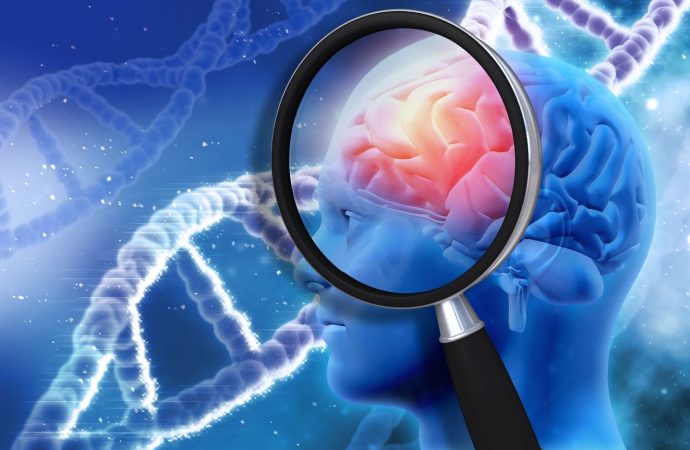In recent years, mental health has become a focal point of medical research and public discourse, leading to significant strides in understanding and treating various mental health conditions. With the continuous evolution of science and technology, new advances in mental health treatments are reshaping the landscape of care, offering hope and improved outcomes for millions
In recent years, mental health has become a focal point of medical research and public discourse, leading to significant strides in understanding and treating various mental health conditions. With the continuous evolution of science and technology, new advances in mental health treatments are reshaping the landscape of care, offering hope and improved outcomes for millions of people worldwide. This article explores the latest developments in mental health treatments and what we can expect in the near future.
Personalized Medicine: Tailoring Treatments to Individual Needs
One of the most promising advances in mental health is the shift towards personalized medicine. Traditional approaches to mental health treatment often rely on a one-size-fits-all methodology, which can be ineffective for many individuals. Personalized medicine, however, aims to tailor treatments based on a person’s unique genetic makeup, lifestyle, and environmental factors.
Genetic Profiling
Genetic profiling is becoming an essential tool in the realm of mental health. By analyzing a patient’s DNA, healthcare providers can identify genetic markers associated with specific mental health conditions. This information can guide the selection of medications and therapies that are more likely to be effective, reducing the trial-and-error process that often accompanies mental health treatment.
Biomarkers
Biomarkers are measurable indicators of a biological state or condition. In mental health, biomarkers can help diagnose conditions more accurately and monitor the effectiveness of treatments. For example, certain biomarkers can indicate levels of neurotransmitters in the brain, providing insights into conditions like depression and anxiety.
Digital Therapeutics: Leveraging Technology for Better Outcomes
The integration of technology into mental health care is another area experiencing rapid growth. Digital therapeutics, which include software programs and mobile applications, are designed to prevent, manage, or treat mental health conditions.
Mobile Apps
There are numerous mobile apps available that offer cognitive behavioral therapy (CBT), mindfulness exercises, and mood tracking. These apps provide accessible and affordable options for individuals seeking mental health support. Some apps also use artificial intelligence (AI) to personalize recommendations and track progress over time.
Virtual Reality (VR)
Virtual reality is emerging as a powerful tool in mental health treatment. VR can create immersive environments for exposure therapy, which is particularly effective for conditions like post-traumatic stress disorder (PTSD) and phobias. By simulating real-world scenarios in a controlled setting, VR allows patients to confront and manage their fears safely.

Picture by: Yandex.com
Psychedelic-Assisted Therapy: Revisiting Ancient Practices with Modern Science
Psychedelic-assisted therapy is gaining renewed interest as a potential treatment for various mental health conditions. Substances like psilocybin (found in magic mushrooms), MDMA, and ketamine are being studied for their therapeutic benefits.
Psilocybin
Research has shown that psilocybin can have profound effects on mood and perception, making it a promising treatment for depression and anxiety. Clinical trials have demonstrated that psilocybin-assisted therapy can lead to significant and lasting improvements in symptoms, often after just one or two sessions.
MDMA
MDMA, commonly known as ecstasy, is being investigated for its potential to treat PTSD. Studies have shown that MDMA can enhance the therapeutic process by increasing emotional openness and reducing fear, allowing patients to process traumatic memories more effectively.
Ketamine
Ketamine, originally used as an anesthetic, has been found to have rapid antidepressant effects. Unlike traditional antidepressants that can take weeks to become effective, ketamine can alleviate depressive symptoms within hours. This makes it a valuable option for individuals with treatment-resistant depression.
Neurostimulation Techniques: Enhancing Brain Function
Neurostimulation techniques are non-invasive methods that stimulate specific areas of the brain to improve mental health outcomes. These techniques are becoming more refined and accessible, offering new hope for individuals who have not responded to conventional treatments.
Transcranial Magnetic Stimulation (TMS)
TMS uses magnetic fields to stimulate nerve cells in the brain. It is primarily used to treat depression, especially in cases where other treatments have failed. TMS has been shown to improve mood and cognitive function with minimal side effects.
Electroconvulsive Therapy (ECT)
While ECT has been around for decades, modern advancements have made it safer and more effective. ECT involves sending small electric currents through the brain to trigger a brief seizure, which can alleviate severe depression and other mental health conditions. Improved anesthesia and monitoring techniques have reduced the risks associated with ECT, making it a viable option for many patients.
Integrative Approaches: Combining Conventional and Alternative Therapies
Integrative approaches to mental health are becoming increasingly popular, combining conventional treatments with alternative therapies to address the whole person—mind, body, and spirit.
Nutrition and Mental Health
Emerging research highlights the strong connection between diet and mental health. Nutritional psychiatry focuses on how nutrient-rich foods can support mental well-being. For instance, omega-3 fatty acids, found in fish, and probiotics, found in fermented foods, have been shown to improve mood and cognitive function.
Mind-Body Practices
Practices such as yoga, meditation, and acupuncture are being integrated into mental health treatment plans. These practices can reduce stress, improve emotional regulation, and enhance overall mental well-being. Combining these with traditional therapies can offer a more holistic approach to mental health care.
The Future of Mental Health Treatments
The future of mental health treatments is bright, with ongoing research and innovation paving the way for more effective and personalized care. As we continue to unravel the complexities of the human mind, we can expect to see even more groundbreaking advances in mental health treatments.
Artificial Intelligence and Machine Learning
AI and machine learning are set to revolutionize mental health care by providing predictive analytics and personalized treatment recommendations. These technologies can analyze vast amounts of data to identify patterns and predict treatment outcomes, allowing for more targeted and effective interventions.
Telehealth
The COVID-19 pandemic has accelerated the adoption of telehealth, making mental health services more accessible than ever before. Virtual consultations and therapy sessions have become commonplace, breaking down barriers to care and reaching individuals in remote or underserved areas.
Ongoing Research
Continued research into the biological, psychological, and social factors that contribute to mental health conditions will lead to more comprehensive and effective treatments. Collaborative efforts between researchers, clinicians, and patients will drive innovation and improve mental health outcomes for all.
Conclusion
In conclusion, the new advances in mental health treatments are transforming the way we understand and address mental health conditions. From personalized medicine and digital therapeutics to psychedelic-assisted therapy and neurostimulation techniques, these innovations offer new hope for individuals seeking relief from mental health challenges. As we move forward, the integration of conventional and alternative therapies, along with the continued advancement of technology, will pave the way for a brighter and healthier future for mental health care.
















